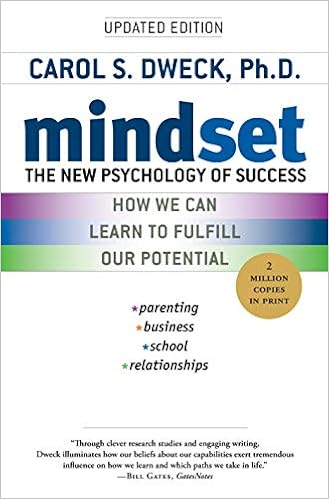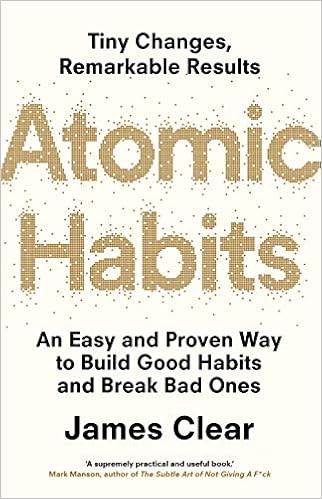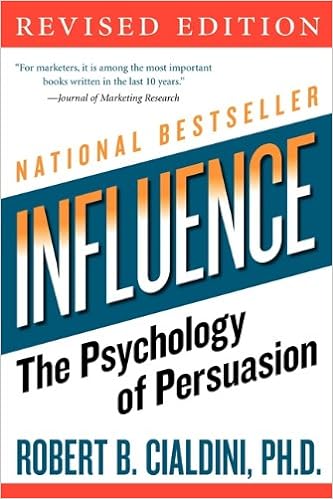Priya and I read several non-fiction books every year. Usually our yearly tally is 20 books each. We also summarise most of the books we read. You can read them in the Book Summaries section.
In this post, we have picked 5 books that are our favourites. Reading these books have replaced some cliched and flawed thoughts about talent, personal finance, productivity, psychology and concentration.
Mindset by Carol Dweck

I would recommend reading this book before all the others recommended in this post. Why? Unless you agree in your mind that you can improve, no technique is effective. So impressed are Priya and I with this book that we consider this as one of the best non-fiction books ever written.
In Mindset, author Carol Dweck argues that no one is born with ‘talent’. That word is over-rated. She talks about people with fixed and growth mindsets. A person with a fixed mindset believes that everyone is born with fixed abilities across different faculties. E.g. some people are born good academicians, but will always be bad at dancing, while some are gifted at sports, but can never get ‘A’ grades. Fixed mindset people are also of the opinion that if a person is having to work hard to understand, learn and perform something, then he/she is not born for it and will never get better. Fixed mindset people also protect their identities such as ‘gifted performer’ and shy away from tougher challenges, lest their performance fail them and they are no longer masters at their game. It is due to fixed mindset that English language has phrases such as ‘gifted’, ‘natural talent’, ‘born leader’, ‘prodigy’, ‘dull head’, ‘not good at languages’, etc.
On the other side, there are people with a growth mindset, who believe that everyone starts somewhere, but can definitely get better through effort and practice. Growth mindset people embrace challenges and even like them tougher since that is bigger opportunity to learn. When failure happens, they look at it as a flaw in their effort rather than as a flaw in themselves. Failure, criticism and feedback are an essential part of learning for people with growth mindset.
Priya has written a detailed summary of Mindset. You can buy the book on Amazon.com | Amazon.in.
Atomic Habits by James Clear

People often assume that to change your life in a big way, you need to overhaul yourself. Crash diets, purchasing shiny new tools and waking up before the sunrise are some of the ‘quick fixes’ suggested so that you can change your life overnight.
Master of habits, James Clear is of the completely opposite opinion. His book has worked wonderfully for us. He talks about building and changing our life one tiny habit at a time. He talks about improving your life 1% everyday, introducing or replacing only one new habit at a time and using existing habits to build new ones. He also talks about tracking the progress of our habits, reviewing them and rewarding ourselves when we head in the right direction. With the effects of habits compounding over a long time, you will be unstoppable.
I have written another detailed summary of Atomic Habits. You can buy the book from Amazon.com | Amazon.in.
Influence by Robert Cialdini

This entertaining book by Robert Cialdini is also quite enlightening. Cialdini explains how the field of sales has developed a few principles that makes people compelled to buy something whether they intend to or not. Cialdini tells us to be aware of the manipulative forces of the principles so that we make ourselves immune to their ‘influence’.
Cialdini talks about the following six principles. First, he talks about reciprocity, wherein you are obliged to return a favour if someone does something for you. People who want to sell something or get something done from you will often do something for you to start with, without you having asked them for it. E.g. a gift. You will then feel obliged to return the favour by doing what they want.
Next is consistency. You will usually do what you have already promised or committed to beforehand. You will also repeat a behaviour that is the same or similar to what you have done in the past. It is human nature to stay consistent to one’s self. If you publicly committed to your peers that you’d run a marathon this year, then the chances of you sticking to that are higher. It is also likely that you will repeat next year.
Next is social proof. You will often do what the majority of people are doing. E.g. you will go to the more crowded restaurant or wear whatever is the latest in fashion, etc. This has to do with our prehistoric tendency to stick with a herd.
If you like a person then you are more likely to comply with what that person wants. People begin to like strangers who are similar to them. Even something as simple as the same birth city or the same school can cause one person to like the other. A ruthless salesperson will often begin by finding a commonality between the him/herself and you.
People are more likely to comply with a person exuding authority. It is common to follow the actions or listen to a person in an expensive suit, a uniform or a badge.
People are likely to desire something that is rare and scarce. The queues outside Apple stores suggest that people want the limited number of iPhones that are made available on the day of their release, to be part of the herd that owns an exclusive phone on the day of its release. A lot of customers are also more likely to buy things that say, “Stocks limited. Hurry.”, whether they really want those things at the moment or not.
You can buy Influence from Amazon.com | Amazon.in.
Deep Work by Cal Newport

We are in an era of multi-tasking. A person’s badge of honour is his/her ‘busyness’, the act of juggling many tasks simultaneously. This makes you look busy and impressive, but it is not effective at all and hardly gets anything done.
In ‘Deep Work’, Cal Newport talks about cutting all distractions and focusing on JUST ONE task at a time. That one task should be the most important task of the day / project. This task usually requires you to push the limits of your brain or body and to be fully attentive in order to get good results.
Newport suggests that you stay away from mass communication or being available for instant response. Rapid communication doesn’t allow you to reach a deep state of concentration that is necessary for deep work. He recommends that you set a block of time per day, even in a busy office, where you have the right not to be interrupted.
Newport is especially averse to social media and says that time spent on it should be scheduled as part of a special limited block of time where you have completed your important work for the day, spent time with your loved ones, taken care of yourself and still have some time left.
Finally, Newport suggests that you practice deep work everyday by setting up your environment for no interruptions for 4 hours every day, since our brain gets tired beyond that and cannot handle more deep work efficiently.
You can buy Deep Work from Amazon.com | Amazon.in.
Rich Dad, Poor Dad by Robert Kiyosaki

‘Rich Dad, Poor Dad’ shot to limelight in the late 1990s as Robert Kiyosaki explained how money works in a very lucid manner. While there is very little to take away as action points from this book, it was a bestseller because it opened the readers’s eyes to how day jobs and thriftiness won’t make you rich, what assets really are and how making money in exchange for time is one of the most inefficient ways to get rich.
Kiyosaki talks about how school and graduation prepare you for a day job, where you work for someone else. In jobs, you are forced to exchange your time in return for money, i.e. wages. To make more money, you need to give more of your time, ultimately capping what you can earn. Kiyosaki stresses with concern that your education is outdated for the world of business where you can earn as much money as you keep providing value. School and college education is also woefully insufficient to understand how money works and how to manage it.
Next, Kiyosaki uncovers some assumptions about assets. He argues that things like your house and your car are not assets. Assets are not simply things that you hope will grow in value someday, due to which you can make capital gains. Rather, assets put money into your account month after month such that you never have to worry about a regular paycheck in exchange for your time. If you were to buy a house with the idea of flipping it in a booming market, then your house is not an asset. But if you were to let it out for rent, then it is. He also reminds you to consider the cost of ownership, such as tax and maintenance. The amount you earn per month from an asset should exceed the monthly expenses from owning that asset. If you spend more per month than you earn, then it is a liability. Kiyosaki’s definition of assets and liabilities are far more realistic and even easier to understand than the equivalents in the subject of accounting, which complicates matters with terms such as depreciation and amortisation.
Priya has captured the main ideas from the book in the book summary of Rich Dad, Poor Dad. You can buy the book from Amazon.com | Amazon.in.
Conclusion
20 to 25 non-fiction books per year can open up a whole new world for you. Of course, you need to follow up by practising the contents. Starting with the 5 books in this post is a great way to reboot the way your brain thinks about some things in your life that you take for granted.

We know you love books. We would you like to give two FREE audio books. Grab your trial Audible Membership with Two Free Audio Books . Cancel at anytime and retain your books.
This is a great collection of books, narrow, specific, actionable and pertinent.